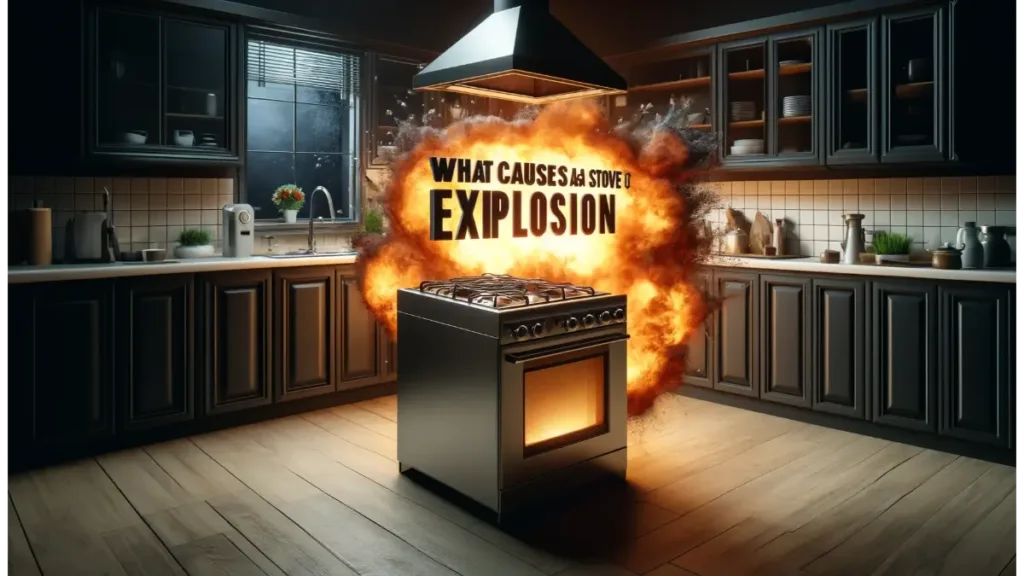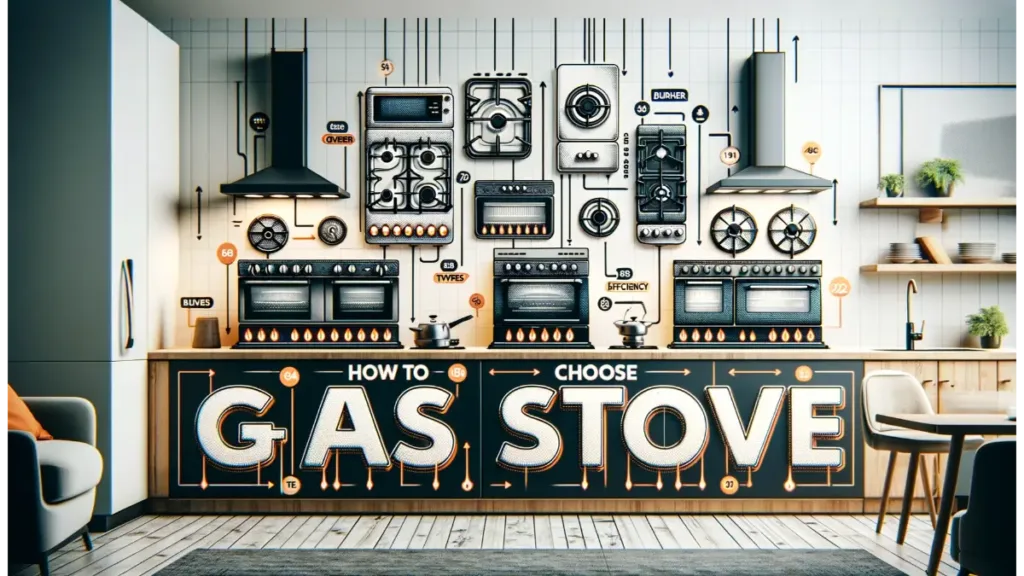Gas ovens are a cornerstone of modern kitchens, celebrated for their precision in cooking and baking. Despite their widespread use and many benefits, gas ovens carry inherent risks that are often overlooked. The possibility of an explosion, although rare, is a serious concern that can have devastating consequences.
This blog post delves into the crucial aspects of gas oven safety, exploring the mechanisms behind how gas ovens operate, the potential causes of explosions, and the preventive measures that can mitigate these risks.
Our goal is to equip you with essential knowledge and practical tips to ensure that your cooking environment is not only efficient but also safe. Whether you are a seasoned chef or a home cook, understanding these safety precautions is vital to preventing dangerous situations in the heart of your home.
Can Gas Ovens Explode?
The short answer is yes, gas ovens can explode. However, it’s important to note that such incidents are extremely rare and often occur due to neglect or improper maintenance. The risk arises primarily from gas leaks combined with an ignition source.
Read more to learn about the potential causes of gas stove explosions.
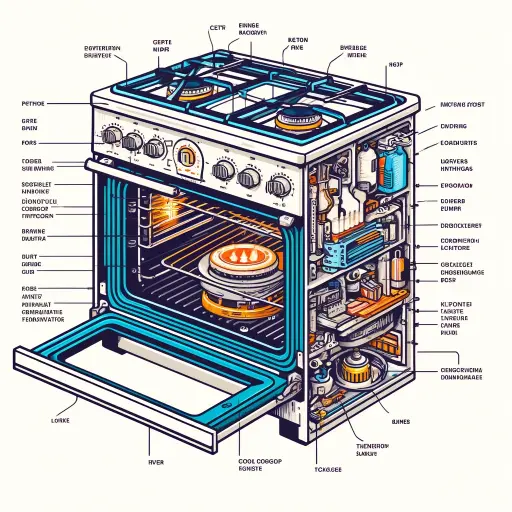
When gas builds up in an enclosed space like an oven and finds a spark, it can ignite, causing an explosion. Knowing how to detect a leak and ensuring your oven is in good working condition are the best ways to prevent this.
How Gas Ovens Work
To understand the risks, it’s helpful to know how gas ovens operate. Gas ovens use either natural gas or propane as fuel. The gas is delivered to a burner where it is mixed with air and ignited by an ignition system.
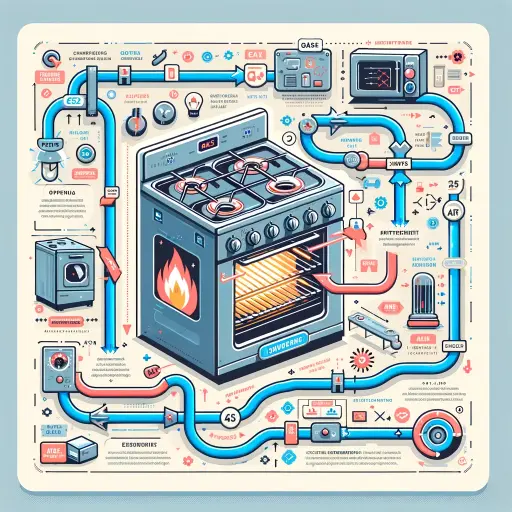
This flame heats the oven to the desired temperature controlled by the thermostat. Modern gas ovens are equipped with safety features such as automatic shut-offs to prevent gas leaks if the flame goes out.
Common Causes of Gas Oven Explosions
Explosions can be triggered by several factors, including:
- Gas leaks: These can occur if the connections to the oven are not sealed properly.
- Faulty igniters: If the igniter fails to light the gas when the oven is turned on, gas can build up inside the oven.
- Improper installation: Incorrect installation can lead to loose connections and leaks.
- Lack of maintenance: Over time, ovens can wear out, and connections can loosen, leading to leaks.
Read more to learn about what causes an electric stove explosion.
Signs of Potential Danger
Recognizing the signs of a faulty gas oven can be lifesaving. Be aware of:

- Smell of gas: This is often the first sign of a leak. Natural gas has a distinct sulfur-like odor added to it to make leaks detectable.
- Hissing sounds: A hissing noise from your oven might indicate gas escaping.
- Failure to ignite: If your oven doesn’t light, the gas might not be burning off, accumulating inside.
Preventative Measures and Maintenance
Preventing gas oven explosions involves routine maintenance and vigilance:
- Regular inspections: Have a professional inspect your gas oven and connections regularly.
- Immediate repairs: Address any issues, such as leaks or mechanical failures, immediately.
- Proper use of oven: Avoid storing items in your oven, which can block ventilation or damage components.
Read Also: How to prevent gas stove explosions.
What to Do in Case of an Emergency
If you suspect a gas leak:
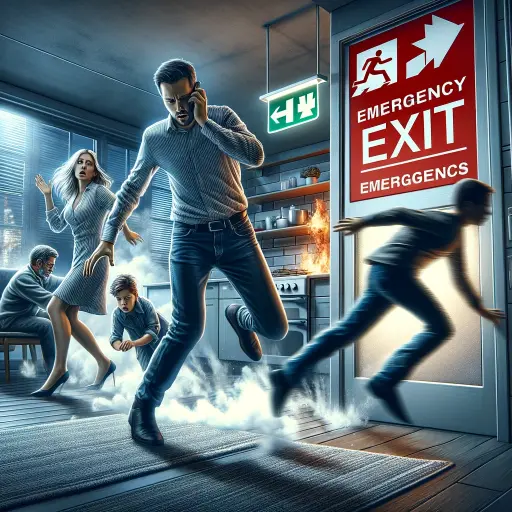
- Do not turn on any lights or appliances.
- Evacuate the area immediately.
- Call emergency services from a safe distance.
- Do not return until it has been declared safe.
Gas vs. Electric Ovens: Safety Comparison
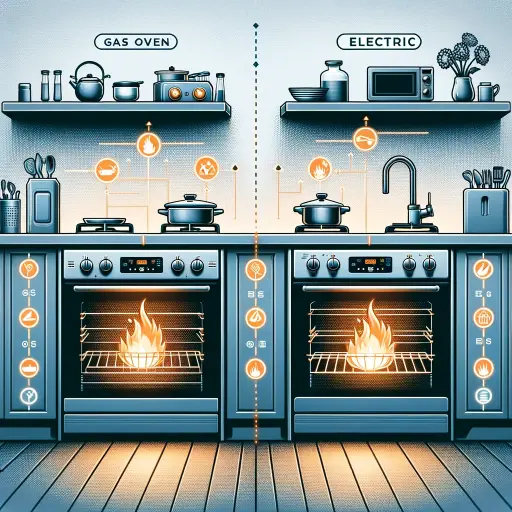
While gas ovens are excellent for cooking, electric ovens generally pose fewer safety risks since they do not involve combustible gases. However, gas ovens can be perfectly safe with proper installation and maintenance.
Quick Safety Comparison
| Feature | Gas Ovens | Electric Ovens |
|---|---|---|
| Fuel Source | Uses combustible gases like natural gas or propane | Uses electricity, no combustible fuels involved |
| Risk of Explosion | Possible if there are leaks combined with an ignition source | No risk of gas explosions |
| Fire Hazard | Higher risk due to open flame | Lower risk as there are no open flames |
| Carbon Monoxide Emission | Can emit carbon monoxide if not burning fuel completely | Does not emit carbon monoxide |
| Heat Control | Offers precise and immediate heat control | Heat control is less immediate but very consistent |
| Initial Cost | Generally lower initial cost but may require a gas line installation | Higher initial cost, but no extra installation fees |
| Energy Efficiency | Less efficient overall, heat escapes easily | More energy efficient, retains heat better |
| Safety Features | Modern units include automatic shut-off, leak detection sensors | Typically include features like automatic shut-off, residual heat indicators |
Technological Advancements in Gas Oven Safety
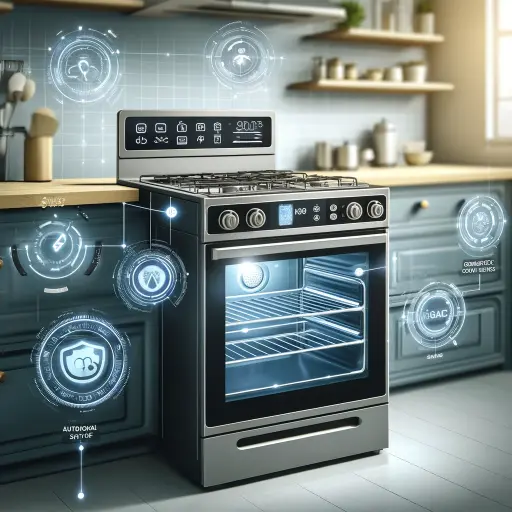
Recent advancements in technology have made gas ovens safer than ever. Features like automatic shut-off sensors, which turn the gas off if no flame is detected, help prevent gas accumulation. Smart ovens can even alert you to problems through your smartphone.
FAQs About Gas Ovens
Can a gas oven cause carbon monoxide poisoning?
Yes, if it’s malfunctioning. Ensure your home has a carbon monoxide detector near the kitchen.
How often should I have my gas oven serviced to ensure it’s safe to use?
Regular maintenance is crucial for ensuring the safety of any gas appliance. It is recommended that you have your gas oven serviced by a professional at least once a year. During these service appointments, a technician will check for leaks, ensure the gas is combusting properly, and verify that the ignition systems and safety features are functioning correctly.
What should I do immediately if I smell gas coming from my oven?
If you detect the smell of gas in your kitchen, it’s important to act quickly to mitigate any risks. First, do not attempt to light the oven or any other appliance, and avoid using any electrical switches, including lights. Open windows and doors to ventilate the area if it’s safe to do so. Immediately evacuate the area and call your gas supplier or emergency services from outside your home to report the leak.
Are there any clear signs that my gas oven is malfunctioning and could potentially be dangerous?
Several signs might indicate your gas oven is malfunctioning and could be a safety hazard. These include the smell of gas when the oven is off, the oven not heating properly, a delay in ignition, a yellow or orange flame instead of a crisp blue flame, and unusual noises like popping or hissing when the oven is on. If you notice any of these signs, it’s essential to turn off the appliance, avoid using it, and call a qualified technician to inspect it.
Conclusion
While the thought of a gas oven exploding is frightening, proper care and maintenance significantly reduce the risks.
By understanding how your oven works, recognizing the signs of danger, and taking proactive safety measures, you can safely enjoy the benefits of your gas oven. Always prioritize safety and stay informed to protect yourself and your loved ones from potential hazards


